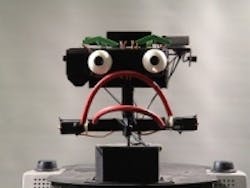In a nutshell, Waddell said that by thinking that companion robots could harm young people, it may lead them to avoid the robots themselves. Waddell goes on to suggest that robot designers may need to consider adding controls that will help adults monitor the use of robots by children, which may convince adults that they can own and use robots, and “still protect their children from their fears that the devices might lead to laziness and dependency.”
The idea of older adults worrying about younger kids becoming addicted or dependent on robots is not necessarily unwarranted. But, looking at this through the lens of someone who is somewhere between "Generation X" and "Generation Y," or the "Millennials," it is really quite interesting. Are younger people today too addicted to technology such as smartphones, tablets, and computers? Well, yes, they probably are. But is that a bad thing?
Let’s compare this to the evolution of the computer. I still remember the days of the old grey/beige computers with black screens and green MS-DOS characters. Growing up and using PCs during their progressing stages, in my opinion, has helped me both appreciate and acclimate to new and innovative PC technologies more easily than if I hadn’t. If robots are really going to be as omnipresent and essential as many experts believe they will be, couldn’t this be the start of a similar experience for today’s youth?
Who knows, maybe companion robots will never really take off. On the other hand, maybe this is just the beginning stage of a robotic revolution, and one day many years from now, someone will be waxing nostalgic about their own personal experiences during the evolution of companion robots.
Pictured: ERWIN (Emotional robot with intelligent network) robot)
Page 1 | Page 2
About the Author

James Carroll
Former VSD Editor James Carroll joined the team 2013. Carroll covered machine vision and imaging from numerous angles, including application stories, industry news, market updates, and new products. In addition to writing and editing articles, Carroll managed the Innovators Awards program and webcasts.

